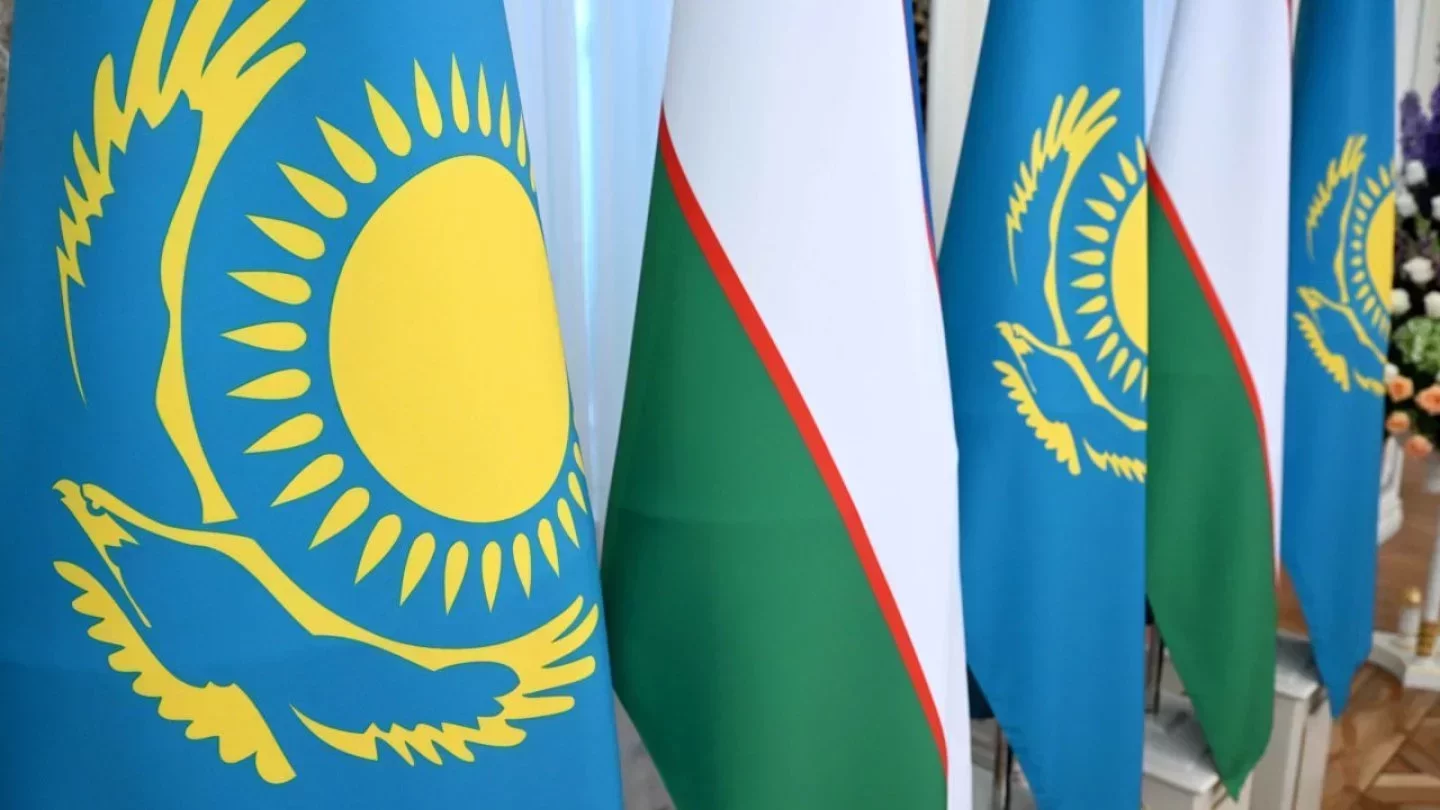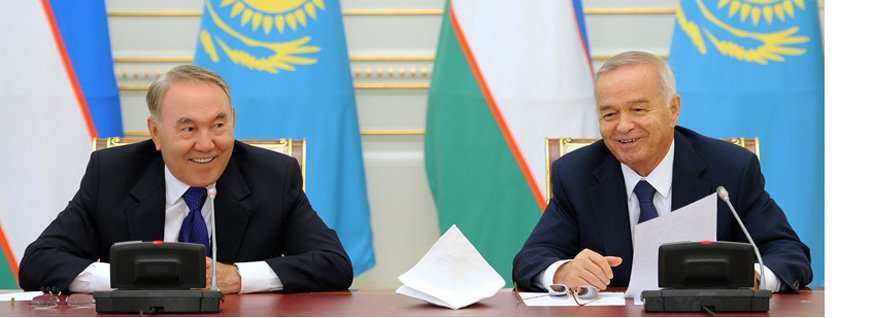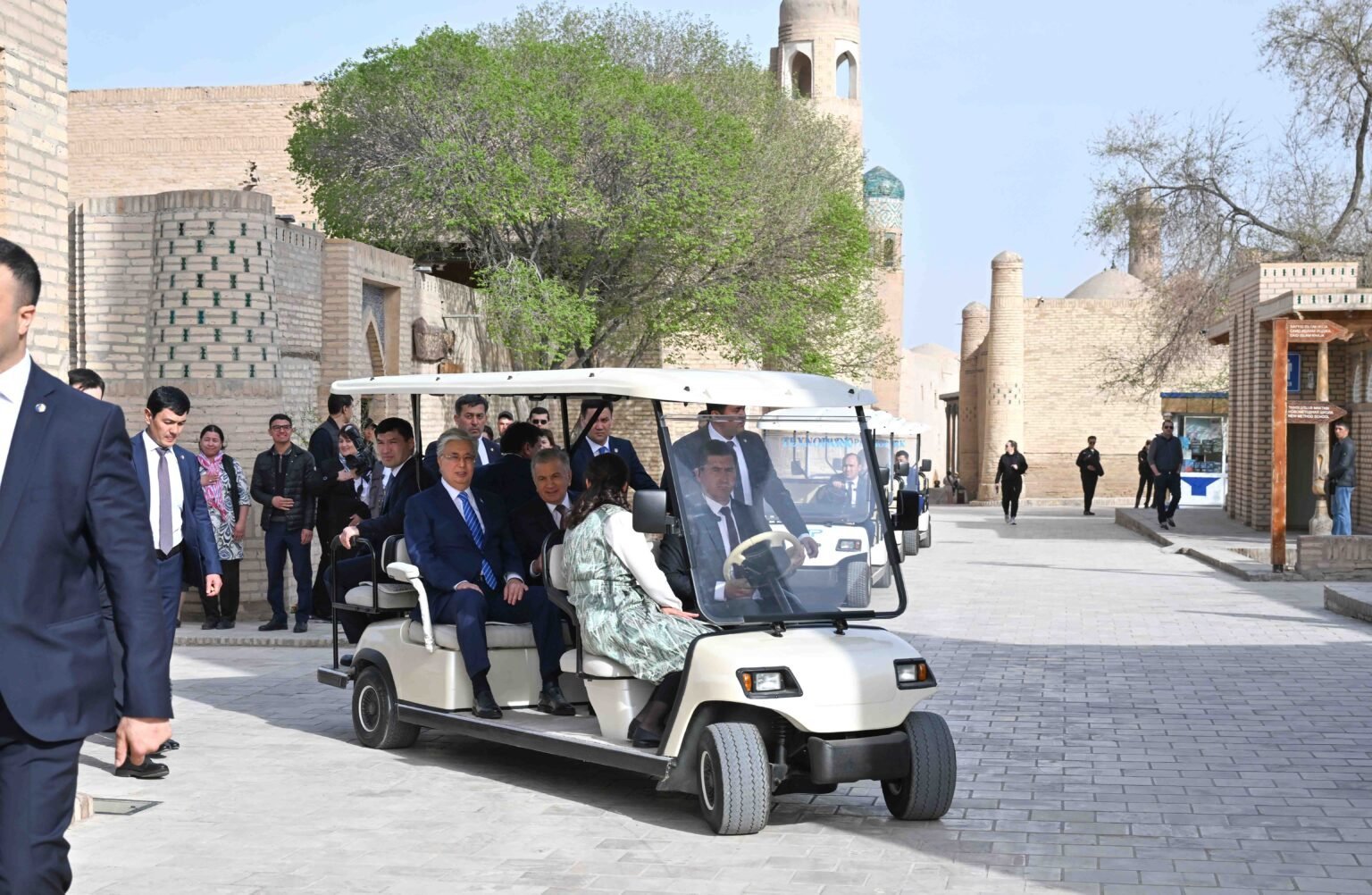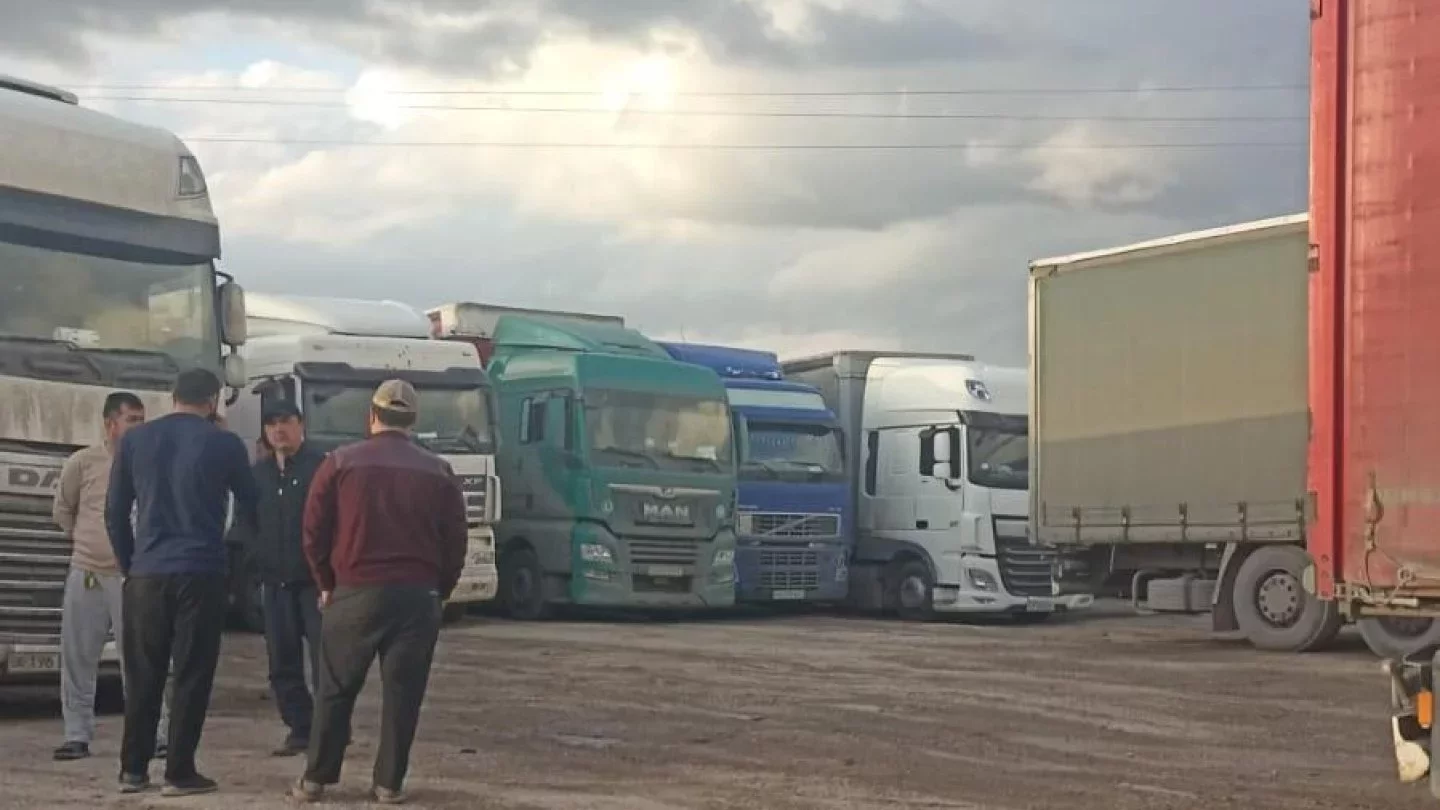Kazakhstan - Uzbekistan: Relations Improving
 Photo: Aqorda
Photo: Aqorda
Relations between Kazakhstan and Uzbekistan have clearly improved. Astana and Tashkent discuss the strategic partnership. Politically everything is accurate. Yet, economic rivalry is still present. Orda has looked into the matter.
We feel at home here. Because we are like one family. We have so much in common - traditions, customs, culture, food, names, history, religion, and hospitality, said Saida Mirziyoyeva, the eldest daughter of the President of Uzbekistan, at the grand opening of the Zakovat intellectual games in Astana.
Her words do reflect the current atmosphere. Indeed, with Shavkat Mirziyoyev becoming the head of Uzbekistan, relations between Tashkent and Astana began to improve rapidly, and not only at the state level.
Nowadays, residents of Uzbekistan no longer look askance at citizens of Kazakhstan trying to visit Tashkent, Samarkand, Bukhara, and Khiva at every opportunity. On the streets of Kazakhstan's cities, cars with Uzbek registration plates have become as commonplace as cars with Kyrgyz plates. Fans from Uzbekistan, supporting Kazakh athletes, chant "Alga, Kazakhstan!" and Kazakhs respond with - "Olg'a, O'zbekiston!"
During Islam Karimov's and Nursultan Nazarbayev's presidencies, it was unrealistic to see or hear such a thing, as both disliked each other.

Trust
The current presidents of Kazakhstan and Uzbekistan are on friendly terms. Few people have noticed, but Uzbek President Shavkat Mirziyoyev, during his state visit that began on August 7, traveled around the capital of Kazakhstan in a limousine provided by the Kazakh President's Office. A similar observation also occurred during the July SCO summit in Astana.
Following Vladimir Putin's or Xi Jinping's example, he could have brought his own armored car. This fact confirms that Mirziyoyev trusts Toqayev, just as Toqayev trusts Mirziyoyev, which was demonstrated during the Kazakh president's working visit to Khiva in April of this year.

Therefore, the statements made by both presidents during Shavkat Mirziyoyev’s recent state visit to Kazakhstan seem somewhat expected.
Today’s talks will contribute to the further expansion of our practical cooperation, as well as the prosperity of friendly and fraternal peoples, President Mirziyoyev noted following the first Supreme Interstate Council of Kazakhstan and Uzbekistan.
Today's talks were held in the spirit of mutual trust and support. We once again confirmed our mutual interest in intensifying bilateral relations. Following the meeting, a program of strategic partnership and alliance for the next ten years was adopted,Qasym-Jomart Toqayev said in turn.
Two Versions
If one were to carefully study the published list of documents signed by both parties, which appeared on the official websites of Uzbekistan and Kazakhstan, they would discover some discrepancies. Although, in theory, there should be none.
According to the Kazakh version, 12 joint documents were signed as a result of the negotiations. According to the Uzbek side - 10 agreements. There is also a small difference in the order of the documents submitted, which usually determines their priority. For example, if Uzbekistan combines protocols on amendments to agreements on checkpoints across the state border and on international automobile traffic, then Kazakhstan considers each protocol a separate document.
A similar situation is observed in the case of protocols on cooperation in the regulation of natural monopolies and in the competition policy. Meanwhile, differences in the presentation of the signed documents are also visible in official publications.
For example, according to Tashkent, the "Agreement on Cooperation in the Field of Agriculture" was signed. And according to the official Astana version, the "Agreement between the Ministry of Agriculture of the Republic of Kazakhstan and the Ministry of Agriculture of the Republic of Uzbekistan on Cooperation in the Field of Agriculture" was signed.
They concern the same thing in essence, and therefore, there is no need to assign any importance to this.
However, at the diplomatic level, where every punctuation mark is taken into account, such a difference in the presentation of official documents is considered somewhat incorrect since it blurs the responsibility for their execution.
End Results?
Other oddities noticed during Shavkat Mirziyoyev's state visit to Kazakhstan have also caught attention. They were concerned not so much with the generally unified views of Tashkent and Astana on the international agenda as with economic cooperation between the leading countries of Central Asia. Both sides once again declared their desire to increase annual trade turnover to $10 billion. Why again?
In April 2021, a similar statement was made at a meeting of the government heads of both countries - Uzbek Prime Minister Abdulla Aripov and former Prime Minister Askar Mamin. It was assumed that this would be facilitated by the appearance between the checkpoints "Jibek Joly" (Kazakhstan) and "Gisht Kuprik" (Uzbekistan), the international center for trade and economic cooperation "Central Asia", the high-speed railway Turkestan - Shymkent - Tashkent, as well as the creation of several joint ventures for the processing of agricultural products.
In 2021, Aripov and Mamin ceremoniously laid the capsule near the Jibek Joly checkpoint in vain. According to Uzbek media, at the negotiations in Astana, a decision was made to speed up the construction of the International Industrial Cooperation Center in the city of Syrdarya. The city is located almost 100 km from the Jibek Joly checkpoint and borders the Makhtaaral region of Kazakhstan, and not the Saryagash region.
As for the high-speed railway, none of the local or foreign investors had the money to start its construction. Plans to create joint ventures in the agro-industrial complex also fell through. From media publications, we know about the activities of nine joint ventures for leather processing. Their utilized capacity stands at 20-30%. There is also the company UzKazTrade, which exports agricultural products from Uzbekistan to Kazakhstan.
Off The Record
No one at the official level says why this happened. Neither in Kazakhstan nor in Uzbekistan. They immediately switch the conversation to the implementation of "successful joint projects" in the banking sector, trade, and automobile manufacturing. Attention also falls on the desire to remove the trade barriers that still exist between Kazakhstan and Uzbekistan. The introduction of an interstate free trade regime also crops up. Incidentally, this was what the Prime Minister of Uzbekistan, Abdulla Aripov, spoke about before Mirziyoyev's visit to Astana.
Despite the declared friendship and obvious desire to integrate, the level of trust between Kazakh and Uzbek officials is quite low. Truth is in the eye of the beholder. Kazakh officials point out the import substitution program still in effect in Uzbekistan, which effectively puts up barriers to Kazakhstani goods of various categories - from food to engineering products. Uzbek officials talk about all sorts of overt and covert obstacles that Kazakhstan, under the pretext of protecting its economic interests, puts up in the way of Uzbek early vegetables and fruits, canned goods, juices, textiles, and even cars.

In such cases, concerns are sure to be voiced that a friendly country is constantly trying to win foreign investments that have emerged after tense negotiations. No one goes into much detail. In Astana, at best, they will recall the choice of Uzbekistan by Apple, Nike, and Volkswagen Group. In turn, in Tashkent, they would point out that most large logistics, telecommunications, and energy corporations from Europe and the USA have placed their regional offices in Almaty and Astana.
Some There, None Here
The agreements signed in Astana may still yield positive results, and the trade turnover between Kazakhstan and Uzbekistan, which was $4.4 billion by the end of 2023, may reach the desired annual $10 billion in the next five years.
According to official data from Uzbekistan, during the negotiations, a business forum, and business meetings held in Astana, it was possible to sign contracts and agreements for a total of $7 billion.
This figure is not mentioned at all in the media resources of Kazakhstan. However, the words of Qasym-Jomart Toqayev are quoted, which are not visible in the media of Uzbekistan. According to them, today, in order to achieve common goals, the Kazakh side is ready to "increase the export of goods to Uzbekistan by $550 million, that is, to expand processed products by 40 types of items." The President of Kazakhstan also mentioned the existence of 70 common Kazakh-Uzbek projects with a total value of more than $3 billion.
It is difficult to say why this happened. Perhaps there was some kind of disagreement. The Uzbek president's daughter, Saida Mirziyoyeva made a notable statement that everyone should heed.
Why did I say that today is the day we feel at home? Do you remember how it was before? I remember. Cooled relations. Hours-long queues at the border between Uzbekistan and Kazakhstan. Mistrust. How could we feel at home? speaking in Astana, Saida Mirziyoyeva noted.
She's right.
Original Author: Anatoly Ivanov-Weiskopf
DISCLAIMER: This is a translated piece. The text has been modified, the content is the same. For accuracy, please refer to the original piece published on 09/08/24 in Russian.
Latest news
- Kazatomprom Signs Memorandum on Uranium Supply with Slovak Power Company
- Energy Ministry Proposes Canceling CT-KZ Certificate for Local Producers
- Kazakhstan Wins Four Medals at International Chemistry Olympiad
- Trump Announces New Patriot Missile Deliveries to Ukraine After Talks with Putin Stall
- Former Special Prosecutor Olesya Keksil Named as Suspect in Torture Case
- Trial Begins for Perizat Kairat Accused of Embezzling 3.5 Billion Tenge
- Week In Review: Tensions, Diplomacy, and Accusations Roil the South Caucasus
- KNB And Antikor Merger: Orda.kz Examines the Evolution of Kazakhstan’s Security Service
- Toqayev Briefed on Kashagan Gas Plant and Pipeline Expansion Projects
- Storms and Scorching Heat Forecast Across Kazakhstan From July 15
- Kazakhstan Proposes Lower Language Threshold for Citizenship Exam, Raises Constitutional Knowledge Requirement
- Digital Nomad Residency: Authorities Respond to Technical Complaints
- Toqayev Sends Bastille Day Greetings, Emphasizes Strategic Ties With France
- KNB Chief Sagimbayev: From Terrorism to Cybercrime, Kazakhstan Faces Complex and Evolving Security Threats
- Kazakhstan Establishes Presidential Reserve Fund Holding Up to 3% of Budget Revenues
- Scammers Posing as Security Agents Trick Architect Into Selling Property
- Ulytau Officials Respond to Fine: Blogger Was Penalized Over Unfounded Corruption Claims
- Kazakhstan Lifts Gallium Export Duty
- Chinese Firm Proposes to Fund New Port and Logistics Hub in Mangystau Region
- ForteBank Stock Soars on Home Credit Deal, Then Plunges 30% in a Day

